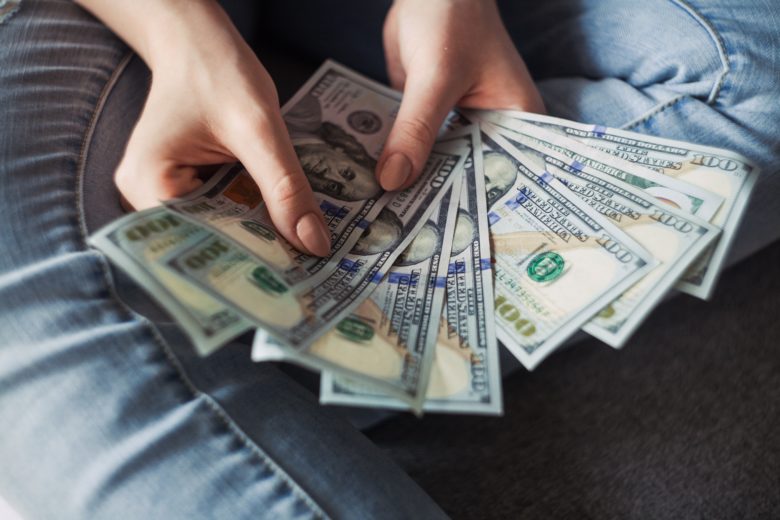
Universal Basic Income (UBI) seems to be all the rage today. The political equivalent of the pet rock is being promoted as the answer to today’s economic woes. Or a model for future economic equity. When you dig deep, you can see it is neither.
For starters UBI is neither universal nor basic as its name implies. To see UBI for the sham it is, one needn’t look further than my hometown of Stockton, California. While the mayor of the city, Michael Tubbs, promotes the $500 monthly stipend just 125 out of 315,000 people are receiving it. It’s being promoted as “the first city led UBI in the nation” but has zero to do with city business. It’s being ran via Tubbs’ nonprofit. It is a case study being funded by Silicon Valley millionaires like Facebook co-founder Chris Hughes and facilitated by academics from out of state. Tubbs is merely the spokesperson using his elected status to sell it to the media on their behalf.
Hughes and Democratic presidential hopeful Andrew Yang argue that UBI will balance the onslaught job automation will cause. It assumes all companies will choose “economic efficiency” and fire people to maximize profits. Natalie Foster, a co-chair of the Hughes’ millionaire funded Economic Security Project says, “America ought to be a place where if you work hard, you can get ahead – that’s the promise of the American Dream and the lesson we’ve been taught for generations. But far too many Americans are struggling to survive…Basic income could be the bold solution we need to remake the economy so it works again, for all of us.”
People assume that automation will replace entire industries like trucking. Billionaires and their puppets are selling this theory as a foregone conclusion. The ethics aren’t being considered. Is it right to automate entire industries and leave people jobless? Are we at the mercy of technology and profit? Or can we regulate it to work for society? Ultimately humans are in control of what technology we let into our lives. We can regulate and limit automation if we choose. The same way Oregon or New Jersey require an attendant to pump gas at gas stations.
In their push for the public to adopt a government stipend aka welfare program, salesmen like Tubbs have even invoked Dr Martin Luther King Jr. In an interview Tubbs referenced a speech by King where he calls for a “basic income” as an economic floor to combat poverty in America. Tubbs conveniently left out King’s advocacy for employment in connection to that income as the top priority.
In the millennial millionaires’ model, work seems to be another after thought. In fact Tubbs, feigning wisdom and expertise on the subject, draws the genius conclusion, ‘…the issue with poverty is a lack of cash” as the reason UBI is an answer to America’s problem of poverty. The wealth disparity that currently exists and continues to grow is the overlooked issue.
Proponents even argue that if every American had a basic stipend, they wouldn’t have to work. That they could pursue more lofty goals like the arts or demand more for their labor if they decided to work. It doesn’t take an expert in economics to see the childlike logic in such notions.
In the case of Tubbs models it is not even a “basic” income. A $500 stipend doesn’t buy much in Stockton. In reality it’s a supplement to existing income. Those receiving government aid can not receive it because it makes them ineligible for programs like SNAP.
It sounds ridiculous on its face considering Stockton is a city where the average rent has shot up 24% to $2,000 a month. Gas prices in California are now the highest in the nation at over $4 a gallon on average. Many of the same politicians promoting UBI also promoted several state taxes that drove up California gas prices. That has contributed to the high cost and economic stress put on families and workers.
Yang’s model, the Freedom Dividend, or UBI, is similar. It allows adults over the age of 18 to choose $1,000 monthly stipend or continued use of their government benefits. That’s a bit different than what he initially promoted. New taxes on companies who profit from automation would pay for it.
Requiring companies that profit from this, despite even higher profits, is a distraction from the tax breaks they receive. In the new book, “The Triumph of Injustice,” economists Emmanuel Saez and Gabriel Zucman detail how for the first time in history the top 400 billionaires in the USA paid a lower effective tax rate of 23% in 2018, compared to 24.2% tax rate paid by the lowest half of American households.
A realistic study would examine the UBI as a liveable wage. The fact they are not makes it seem more of a publicity stunt. With billionaires backing this idea, I am automatically suspicious of its purpose.
This all feels like a big distraction to avoid fixing the real causes of economic inequality. For instance, why the federal minimum wage has not kept up with inflation for decades. Or why tax breaks for the wealthiest 1% have steadily increased. Let’s not forget that tax rates have been whittling down since the 1970’s when wealthy paid almost 70%. What’s laughable is that the wealthy are proposing solutions. They helped cause the problem! Silicon Valley billionaires moving into various neighborhoods has driven up housing across the state and homelessness has exploded.
Then there’s the question of owner vs. worker pay. According to a study by the Economic Policy Institute “CEO compensation has grown 940% since 1978” while “Typical worker compensation has risen only 12% during that time.” The CEO-to-worker compensation ratio was 221-to-1 in 2018. According to a study by Gabriel Zucman the wealth disparity in America has not been this severe since the economic crash of 1929 that led to the Great Depression.
These are the true factors that contribute to income inequality and poverty. Except that we do not hear the billionaire boys club addressing these issues. “Universal Basic Income” is a public opiate and diversion from addressing these problems. It’s time for the top 1% to pay their fair share to really begin alleviating the problems impacting our country.
